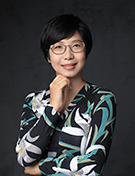Yingchun Ji, MPRC Visiting Scholar and Shanghai University
| When |
Sep 30, 2019
from 12:00 PM to 01:00 PM |
|---|---|
| Where | 1101 Morrill Hall |
| Contact Name | Jennifer Doiron |
| Contact Phone | 301-405-6403 |
| Add event to calendar |
|
About the Presentation
As the number of new births continues to decline for a second consecutive year after the implementation of the comprehensive two-child family planning policy, the increase of aging population is also unprecedented in China. Old age support has become an impending social issue in China. With the underdeveloped social welfare system, family support for the elderly has been the norm. Scholars have increasingly investigated the new phenomena of daughter providing for the elderly in spite of the Confucian patriarchal tradition of raising sons for old age support. Yet, most focused on daughter’s support for and caregiving to the parents, but did not look into how the generations interact, especially how parents support and provide for daughters. While more and more research studies daughters caring for their parents, they pay less attention to daughters-in-law. This research intends to understand daughter’s old age support in the context of daughter-parents’ daily interaction and married women’s dual role of being daughter and daughter-in-law.
About the Speaker

Yingchun Ji is a Visiting Scholar at MPRC and the Eastern Scholar Professor in the School of Sociology and Political Science at the Shanghai University. Her research interests include family sociology, gender studies, and low fertility in China, and quantitative, qualitative and mixed methods. In addition to empirical studies using both quantitative and qualitative methods, Dr. Ji has dedicated herself to developing localized theories to understand changing gender dynamics, changing institutions of marriage and family in post-reform China, and to understand low-fertility in present China as well as in East Asia from a gender perspective. Currently, Dr. Ji is working on two projects: 1) developing a theory called Mosaic Familism to understand the changing intergenerational dynamics in Chinese families; and 2) conducting a project to understand a voluntarily run Match-making Market by anxious parents in the People’s Park in downtown Shanghai.
